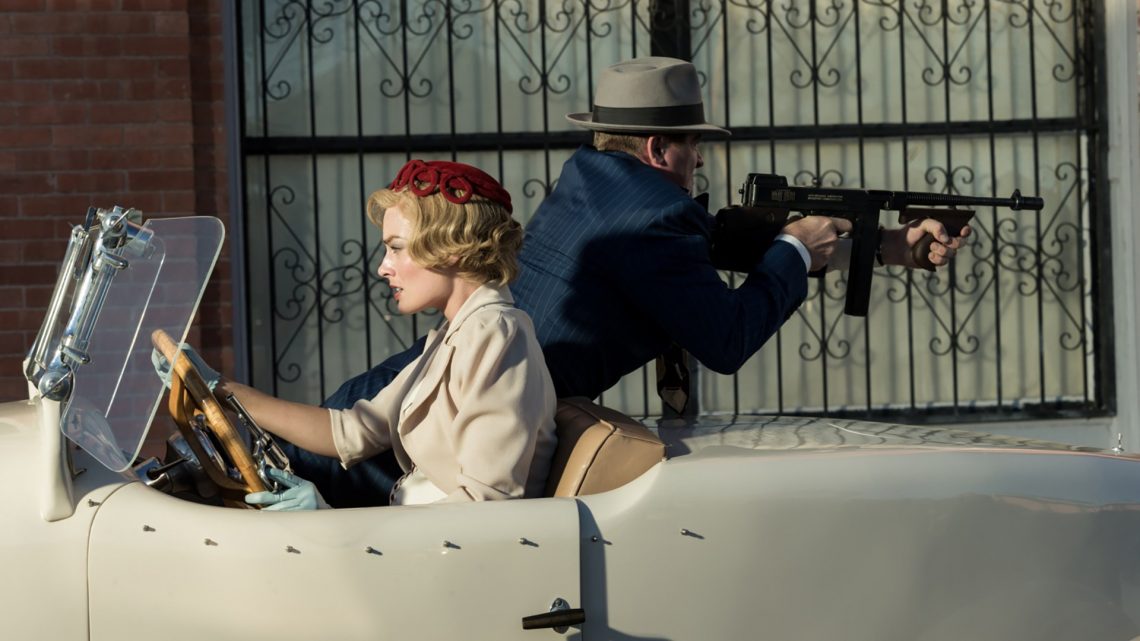
As a longtime fan of slow-burning westerns and less-than-underdog characters doomed to failure, Dreamland was a must-watch for me. It embodies the sunshine-soaked, hazy spirit of mid to late-2000s indies that stumble upon mainstream success, and sports a certain naïve charm brought on by the greenness of director Miles Joris-Peyrafitte. That naïvety is transferred to the illusions of protagonist Eugene Evans (Finn Cole), who so desperately wishes to leave his family’s Oklahoma farm in search of his long absent father in the supposedly idyllic beaches of Mexico.
Dreamland is by no means a perfect drama. Despite landing a spot at 2019’s Tribeca Film Festival, the movie has poor reviews, likely due to its minor plot gaps and sometimes painful intensifications of youthful stubbornness. However, this shouldn’t push curious viewers away. If not for a new take on the period Western genre, then watch Dreamland for the chance to experience an indie film with realistic young characters whose obstacles go beyond not being able to find love. (In other words, Dreamland’s unconventional approach to its characters deserves merit alone.) It takes its story from an era when survival was a day-to-day task, and highlights the protagonist’s strong-willed and impossible dreams in such a way that he is endearing, but a little less so as the adventure in his eyes fade over time. Even aside from the supposed plot gaps, this is a movie that expertly incorporates satisfying character-driven action, creating the sense that we’ve just endured one of the film’s many dust storms.
What helps the film feel more realistic is, surprisingly, the age of its director and his writer (Nicolaas Zwart), both of whom are relatively new to the industry. The two are remarkably attuned to stories about repression, a characteristic common to coming-of-age dramas but often twisted by creators too far along in their adulthood. Despite this being only his second feature, it’s safe to say that Joris-Peyrafitte is a capable storyteller who harnessed the talents of his seasoned crew. Cinematographer Lyle Vincent (Thoroughbreds) and production designer Meredith Lippincott (Bad Education, which, coincidentally, is also shot by Vincent) work closely to develop a sweeping, breathtaking plainlands setting. Lippincott, whose work for Dreamland deserves a careful study of its own, constructs a desolate world full of dust and yearning. Is it the haziness from all this dirt, or perhaps also the nostalgia from a time we never lived in? Each setup immediately looks like a staple of the period. Vincent, himself, incorporates methodically slow camera movements, a style established by his sweeping opening sequence: a rising crane shot reveals a vast, jaw-dropping landscape drowned in golden-hour sunshine. It reflects the film’s relatively slow pace, but leaves room for a veteran ensemble to lay out the nuances of their characters, all of whose actions are causal.
Dreamland touches on a number of categories, from being a Depression-era Midwest period piece and a coming-of-age film, but nothing is romanticized, and yet the film is never not enrapturing. Travis Fimmel (Vikings, Raised by Wolves) plays Eugene’s stepfather who is also the town sheriff, an imposing, increasingly monstrous man set in his ways, who violently and relentlessly searches for Allison, herself on the lam after committing a bank robbery. Eugene is as innocent as can be, immediately adoring of Allison who is every bit like the femme fatale in his dime store novels, but he quickly matures knowing that he is aiding a fugitive. The movie is directed and written by young men rekindling their dreamy, wide-eyed boyhoods in the context of a different era. Their awareness that they don’t hail from this time is exactly what separates Dreamland from other westerns. Despite the wistfulness with which the era is approached, the land, its people, the relationship between Eugene and Allison—none of it is made to be better than it actually is. There is no lack of inconvenient dust storms to put the film’s characters in their place, though everybody is as tough as living in the 1930s Midwest requires. Eugene’s own softheartedness clashes against his brutish stepfather’s representative meanness, serving to depict just how out of touch with reality Eugene is. As the story progresses, he realizes his futile situation, but also the contradictory steps that need to be taken to escape his increasingly claustrophobic home: he must develop the same toughness he despises in his stepfather and conservative community in order to be able to make the life-changing sacrifices required for him and Allison.
The uncanny couple’s struggle to make it to freedom in the South makes up only a quarter of the movie, yet it provides the most insight into their unlikely relationship and how much Eugene grows. His boyish features harden with each new obstacle, and the tension inspired by his and Allison’s unlawful romance is translated into music by composer Patrick Higgins’ thematic sound of bow put to wiry violin strings. It’s much akin to the score from The Assassination of Jesse James by the Coward Robert Ford, which is equally intense and slow in its approach to its characters’ ends.Dreamland is a film that serves viewers well if they’re willing to let it. Those who experience the most fulfillment from movies that are thematic more than action-packed or mind-bending will enjoy this inevitable classic. Revel in the breathtaking setting offered here, and Dreamland’s ability to build up viewers’ investment in its characters as an examination of human nature.